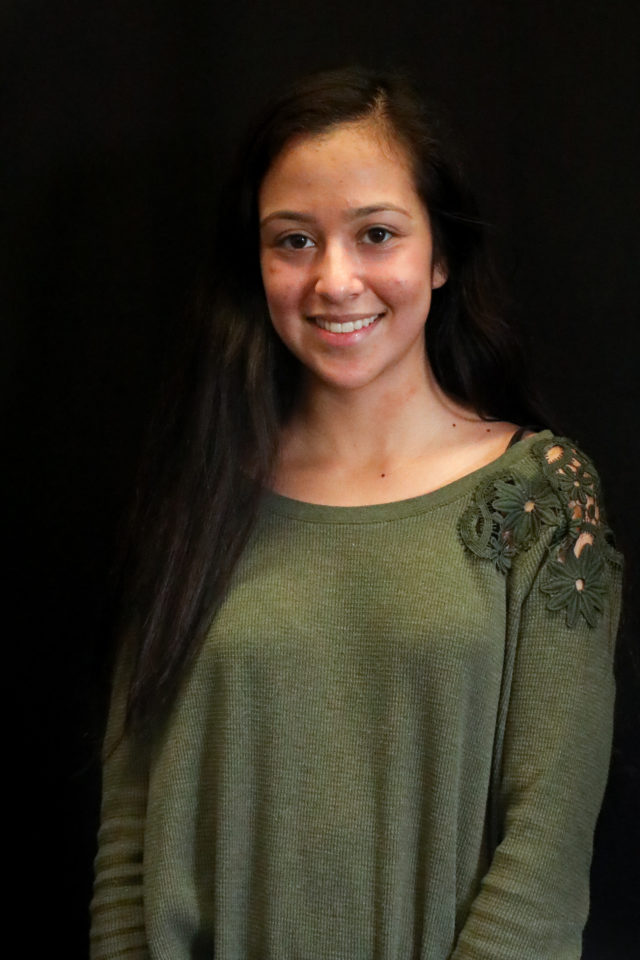By Jessika Harkay | Sports Writer
II never understood what it meant to be a minority until I branched out from home and found myself at a university where only 14% of students identified as Latinos.
My first year at Baylor, I genuinely struggled finding common ground with others. Not so much because I looked different than most of my peers in the classroom, but a feeling that I grew up a different way, listened to different music, knew a different language and it almost felt I didn’t have a grounding here with people who understood that side of me.
I began exploring different options to find my space at a university where everyone around me seemed to have found a type of community for them. Something that instrumentally shaped my mark on this campus was deciding to join a Multicultural Greek Council organization: Kappa Delta Chi Sorority Inc.
It made me understand why so many ethnic groups on campus stick near one another when I finally found an organization that would understand little things, especially relating to my culture and having an immigrant parent.
This sense of grounding inspired me to dig deeper if other students of color felt a similar way, and to my surprise, they did. The more I talked to students, especially covering a black student mixer earlier in the month, I realized all of us have an inner struggle of finding our place and owning it.
As a minority student, something struck a chord in me to focus on multicultural affairs and tell our stories. The biggest thing was starting small and where I knew I had grounding — with Latina girls I knew may be facing the struggle that no one seems to talk about on a platform.
So when I became a recruiting chair and took girls out on rush dates, I made sure to always tell my story and let them know they had a place here, too.
The thing that shocked me, though, was the surprise that they could have a community at Baylor and the fact they didn’t know outlets like Multicultural Greek Organizations (MGO) and National Pan-Hellenic Council (NPHC)existed for students of color.
Which got me to the question of recruiting and why multicultural sororities aren’t participating in the weeklong rush Baylor Panhellenic sororities hold the week before the spring semester.
Erin Ellis, the interim assistant director of fraternity and sorority life, said a lot of it had to do with the different governing councils and their rules toward rushing, and not so much the university or differing groups.
“Each of these governing councils kind of answer to a higher or coordinate with a higher Governing Council. So our panel and council actually adhere to a lot of the policies and practices that the national panel and its conference sets in place and that’s nationwide,” Ellis said.
“MGC or NPHC would host recruitment events, they kind of make their own schedule. They do it very independently of the council. When they [Baylor Panhellenic sororities] do formal recruitment, it is very controlled from start to finish, from the timing of the events that they can have, to what kind of contact they can have with individuals. It’s very regulated, and with MGC and NPHC sororities, that process is much less controlled and much more given to the chapters. You guys have a lot more ownership over that process and what it looks like for you.”
Throughout her tenure at Baylor, Ellis said mixing all three council’s recruitments together for similar exposure and opportunity has yet to be brought up to the councils.
“I don’t know how that would work here, and not to say that it wouldn’t work. I just think it’s one of those things that, I don’t know, that we’ve ever entertained,” Ellis said.
“We are working on a vision for Greek life. And that one of those things is about celebrating diversity and how do we recognize and bring more exposure to our underrepresented groups? Even things like NPHC has this garden, but it feels sometimes like people just don’t know about it, and so how can we kind of pull some of that attention in? Because you all have such a rich history and such rich literature and so how do we help the larger community of students see that?”
So instead of being angry and feeling divided, us students of color can bring up these concerns and create our space on campus, because maybe the idea has just never crossed others’ minds.
As most MGO sororities’ recruitment processes come to a close, we have to make our stand and speak up for equal opportunities on campus.
Jessika is a senior journalism major from Eagle, Colo.



